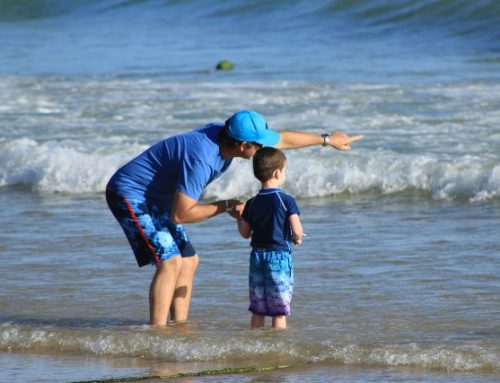All of the best things in life are based on relationships. Relationships are the cornerstones of our lives. We are in them for pleasure, business, growth, enlightenment, companionship, community, and greater knowledge. There is one aspect of relationship that needs to be dealt with gingerly. Sometimes it’s the elephant dancing in the room. Conflict is defined as a “serious disagreement or clash.” When these moments and situations arise, where do we go? Do we handle them with grace and dignity? Or do we shrink with incivility and tactlessness? Do we listen to the other person’s position or do we jump right into defense? Do we accuse and blame? Or do we do our best to hear and put ourselves in the other person’s shoes? There are many different approaches to resolving conflict. They are not taught or discussed often in the mainstream. Many of us have learned skills through personal study. Relationships make life delicious and worth living. Studies show that when our relationships are going well, we do well. When a branch snaps suddenly and falls to the ground, what choices do we have when a disagreement arises?
Responding vs. reacting
In the coaching world, in order for someone to eliminate tolerations, those sticky things that hold us back, we are taught the distinction of responding vs. reacting. Reacting is old, from the ego, it is fear-based, it is the past, and has some pretty uncomfortable consequences. Unless our goal is presence and awareness, most people are coming from this ego paradigm. Responding is in the present, it comes from the self, it is listening, it seeks to understand, and is new. Responding does not stand loaded and waiting to defend. Responding opens itself up to what is trying to be revealed. In order to remain a happy, toleration-free zone, responding to disagreements as often as possible is our goal.
Proactive guidelines
Our dear friends Standards and Boundaries come into play here. They are some of the most powerful tools. Standards are behaviors we hold ourselves to, and boundaries are behaviors we hold others to. We need to determine for ourselves how we want to interact with others when there is a misunderstanding or a disagreement. When we are in a long term relationship with someone, it’s important to set guidelines on the healthiest ways to handle conflict. There can be twists and turns along the way. As we all grow and change, our needs change and what we need now may be different than it used to be. It’s important to check in with ourselves and each other intentionally to create some healthy guidelines.
A delicate introduction
If I have a close relationship with someone, a relationship we have nurtured and fostered over the years, and they introduce a problem via text, I don’t know what to do with that. Text is brief and has a lack of context, plus there is no tonality, so you never really know where someone is coming from or what they truly mean. It is difficult to get to the heart of an issue via text. In my experience, it compounds difficulty in resolution.
Another introduction that is less than popular is calling someone out publicly. It feels bad for the giver and the receiver. Scarlet lettering someone has no positive outcome, unless it’s being used to terminate a relationship. Most people prefer to resolve conflict privately. As a standard, it is uncouth and unfair to speak about a conflict publicly without both persons present and permission from both parties. To do so without permission can violate trust. Safety and trust are top priorities in relationship. If there is an ongoing perceived lack of safety or trust, the relationship will dissolve. With egos aside, you can commit to a healthy try.
Meeting of the minds
“To be in great relationships, we have to have great courage.” –Me In order to succeed in the resolution process, there needs to be a willingness to sit down and look each other in the eye; even if the exchange about to take place may not be desired. My writing partner Aviva just wrote her last blog on removing judgment when we perceive something unpleasant is happening. My husband calls this judgment “doubling down” on discomfort. It makes whatever we are going through twice as hard. In order for us to flow, things need to be resolved more kindly, considerately, and gently. This is a good time to remember we are all human beings. We are spiritual beings doing the best we can in our human experience.
The love tip
A good friend of mine called recently and shared some tips on how she resolves conflict with loved ones. She gave me a great reminder. She said, “I always start the conversation off by telling them I love them.” It lets the person you are about to discuss conflict with know you care about them and have their best interest at heart. Telling someone you care about them before unloading is a gift. She starts her conversations off with: “I love you and…” “Your friendship is important to me and…” This simple statement can remove the fear from the dialogue that needs to take place.
The best apology is changed behavior –Unknown
The most effective way to resolve matters in a relationship is to engage better behavior. It is the willingness to be honest, to examine ourselves, and take action to improve. If someone voices a problem with what you are doing, the kindest way to let that person know you heard them is to stop participating in the behavior that they said hurt them. Even if it’s not your way of doing things, if it is not unreasonable, is respectful and important to them, and the relationship is meaningful to you, you meet their request.
To be or not to be: that is the question –Shakespeare
One caveat to this scenario is that it takes two to tango. How do we resolve with people that are unwilling to work with us on a healthy level? There are only so many olive branches you can extend. And do we want to resolve? Is it healthy for us? And if there is no response, isn’t that a sign that the other person is choosing not to relate, which means there can be no relationship? This can be a challenging crossroad, unless the person seeking resolution is aware and conscious. A good therapist/strategist taught me years ago, in order to have a relationship, both people must be able and willing to relate. This made complete sense to me and healed the desire to regret a divorce or chase a person down who simply did not want to relate.
Relationships are the most exquisite experiences available to us. They are nourishment for the soul. They make us better, bigger, and stronger. We have them with ourselves and with everyone around us. When the going gets tough, do we get going or take someone’s hand, look them straight in the eye, tell them we love them, and get down to business. The choice is always yours. The cost and the benefit of being human comes down to this. When conflict arises, where do we go? How do we do it well, better than we ever have before?





Leave A Comment